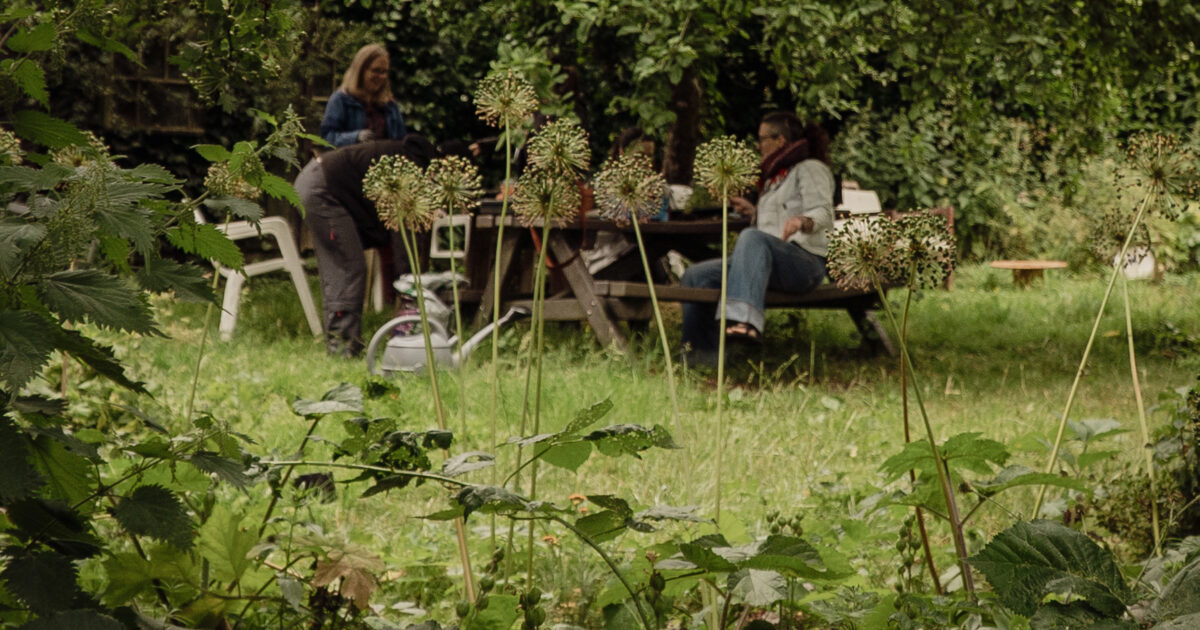As part of this year’s Migration Matters Festival, I found myself drawn to a quieter kind of celebration – one grounded not in fanfare or performance, but in soil, petals and gentle conversation. Bloom Sheffield’s community flower garden for women and non-binary people in Sheffield became my sanctuary for the morning.
In a world that can at times feel overwhelming or exclusionary, places like this are crucial because they offer a sense of serenity, safety and belonging. The importance of this effort is highlighted by Bloom Sheffield’s involvement in this year’s Migration Matters programme. Inclusion and migration are closely related; both require that we create communities founded on compassion, openness and understanding. Although this garden is based in Sheffield, the city is not the only place that needs these inclusive areas. It serves as an example of how kind, neighborhood-based assistance may be provided anywhere, whether it is in a different city or even a different nation. It’s crucial for many women and non-binary individuals in Sheffield to have a space where they can re-establish a connection with the natural world and their community without feeling judged or under pressure.
Bloom, a non-profit group that promotes positive mental health via therapeutic gardening, is located in Meersbrook Allotments, in a quiet section of the city. Participants are invited to assemble in their well-kept garden, take a deep breath and rekindle their connection with nature and themselves.
Embracing the Stillness
When I came, I didn’t know what I needed. Life had been hectic and
disorganised, and I had lost my footing a little. But as soon as I went
inside the garden gate, I felt something change. The garden opened with
beauty and care: roses in full bloom, herbs humming with bees, apple
trees rustling overhead. There was a central interior centre that was
cosy and inviting, with drinks available and friendly conversation
flowing freely. Outside the garden was an abundance of bright activity.
I was encouraged to take part in seed sowing, potting up young
plants, feeding and deadheading flowers, and just sitting and taking it
all in. I was drawn to the roses by their perfume and colour, and I
spent a lot of time silently caring for them, snipping back wasted
flowers and replenishing the soil around their roots.
A Community in Quiet Motion
What struck me most was not just the beauty of the session, but the
relaxed pace it promoted. There was no expectation to perform or even to
talk. Some guests interacted while working, telling stories or
laughing. Others remained silent, intent on their duties or lost in
meditation. Everyone was free to move to their own beat.
Along a winding passage there were small dens and hideaways, clearly
made with children in mind – reminders that this was a place for all
generations to feel safe and held. The atmosphere was one of an easy
unspoken understanding.
This garden session was part of A Morning in the Flower Garden,
one of many offerings during this year’s Migration Matters, which
celebrates the richness and diversity that migration brings to the UK.
Bloom’s contribution reminded me that community isn’t always about being
visible or vocal. Sometimes it’s about the invisible threads we weave
when we just show up for each other, side by side.
Bloom’s approach to care felt innovative in that it was free of cost,
expectation and noise. In a world that typically values hustle and
output, creating a space that fosters relaxation, reconnection and
rootedness can be subversive.
Leaving with Full Hands and a Full Heart
I left Bloom Sheffield that day with dirt beneath my nails and a more
relaxed pulse. The act of tending to roses, or just being permitted to
dwell in such a serene environment, had accomplished more than I had
expected. It kept me grounded. It reminded me of the power of silence,
gentle community and gradual, collaborative growth.
Bloom Sheffield is more than a garden for anybody looking for a moment of reflection or a fresh way to connect with others or the planet – it’s a reminder that huge gestures are not always necessary for healing. Sometimes all you need are gardening gloves, a rose bush and an open gate.
